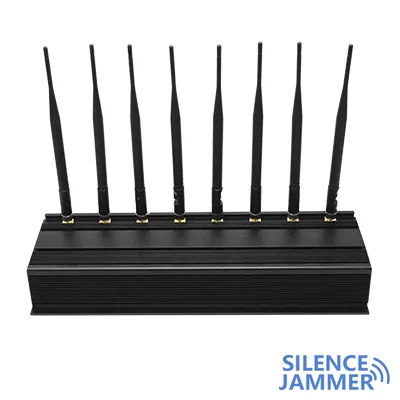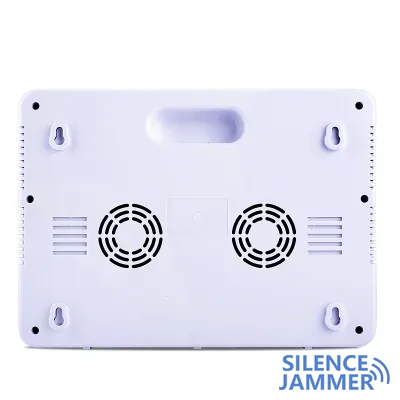Federal authorities in South Carolina recently announced a life sentence for Daniel Allen Shannon, 43, of Lexington, for a prison cell phone incident. This incident highlights the need for cell phone interference in prisons, as inmates are using contraband cell phones to continue their criminal activities.
Shannon is currently in custody of the South Carolina Department of Corrections (SCDC) and is ineligible for parole for his conviction for the 2001 kidnapping, robbery and murder of a Lexington restaurant manager. According to his prison criminal record, Shannon has attempted to escape SCDC custody multiple times, most recently last month when he was found with a weapon. In January 2020 and December 2021, he was cited for “possession or attempted possession of a cell phone.”
cell phone jammer

Federal prosecutors noted that Shannon used contraband cell phones to coordinate the distribution of large quantities of methamphetamine in Lancaster and Kershaw counties. More seriously, he also carried out assassinations in prison. After believing one of his drug couriers was robbed, Shannon sent his accomplices to retaliate, resulting in the shooting death of a Kershaw man in September 2019. Shannon then ordered his accomplices to burn down the residence where the murder took place and dispose of the victim, whose body was found dumped on the side of a highway in Westerville, South Carolina.
“This case illustrates the extreme dangers posed by the presence of contraband cell phones in our prisons,” U.S. Attorney Adair Ford Burroughs’ office noted in a press release. “We will not sit idly by while inmates use these phones to commit violence, drug trafficking, sex crimes, and fraud, and we will work with our federal and state partners to vigorously prosecute these criminals and protect the public.”
Shannon was federally indicted in February 2022 and pleaded guilty in February 2023. This month, U.S. District Judge Sheri Layden sentenced him to life in prison, but the sentence will only take effect “upon his release from a South Carolina prison.” Shannon is ineligible for parole due to his multiple convictions.
The incident revealed the urgent need for prison cell phone interference. Inmates using contraband cell phones not only endanger public safety, but they can also continue to engage in illegal activities inside and outside prisons. South Carolina Prison Superintendent Brian Sterling and U.S. District Court Judge Sheri Layden are both vocal advocates of cell phone jamming.
In response to Shannon’s conviction, Sterling said, “This is yet another example of an inmate using a contraband cell phone behind the fences of a state prison to continue committing crimes.” His comments are supported by many legal and security experts who believe that preventing inmates from accessing and using cell phones is a key measure to maintain prison order and public safety.
In public discourse, individuals and institutions often cling to bad ideas, try to rationalize or explain them away, or suddenly change their mindset without explanation. Such practices do not build trust with audiences in the marketplace of ideas. Admitting mistakes or reconsidering previous positions when prompted by new information is critical.
For example, while I was once a staunch opponent of voter ID laws, over time I came to recognize the importance of “one person, one vote” and the failure of the current system to uphold that ideal. Similarly, I opposed cell phone jamming around Palmetto State Prison until I realized that the so-called public safety objections of wireless service providers pale in comparison to the threat posed by violent inmates with these devices.
The case of Daniel Allen Shannon is a warning, revealing the serious harm of contraband cell phones in prisons. Although wireless service providers profit from prepaid calls and minutes, such economic interests should not override public safety. The federal authorities’ life sentence for Shannon is not only a sanction against individual criminals, but also a strong response to the problem of contraband cell phones in prisons.
In the future, governments at all levels and relevant departments should continue to strengthen the implementation of cell phone interference in prisons to ensure that prisoners cannot use contraband cell phones to continue crimes, thereby better protecting social public safety.











